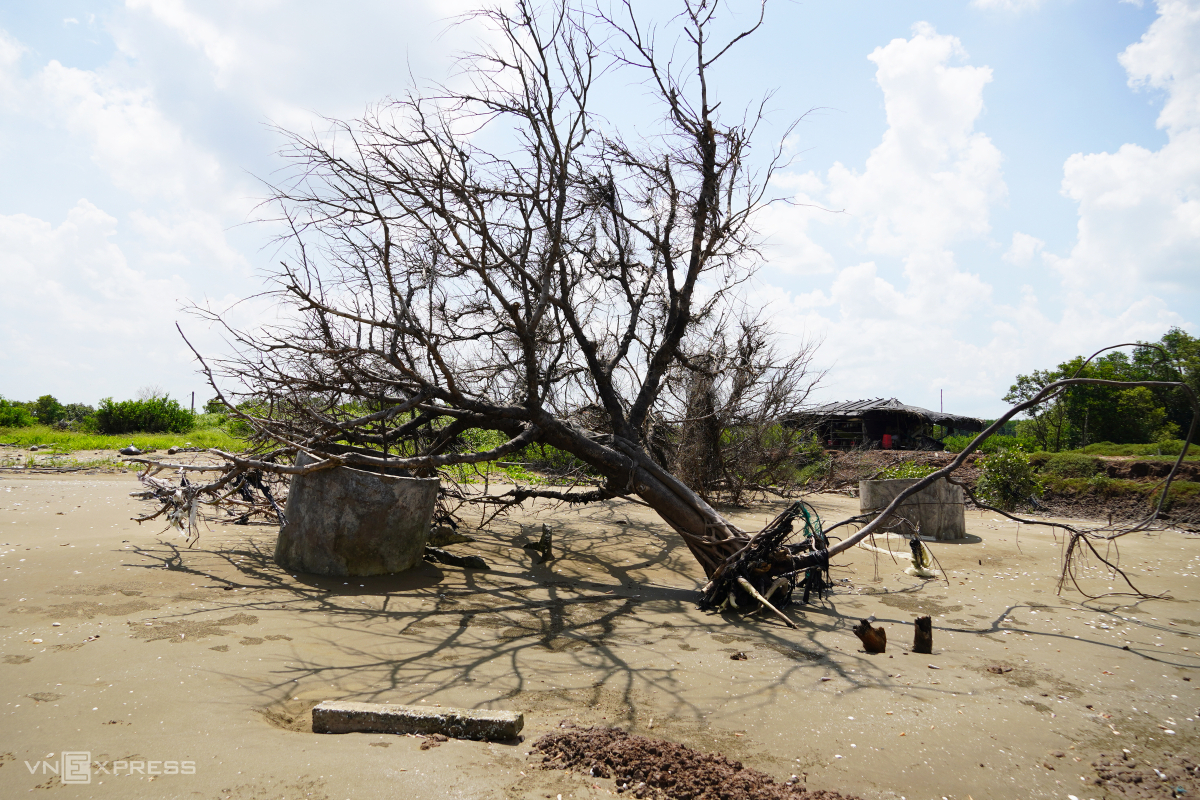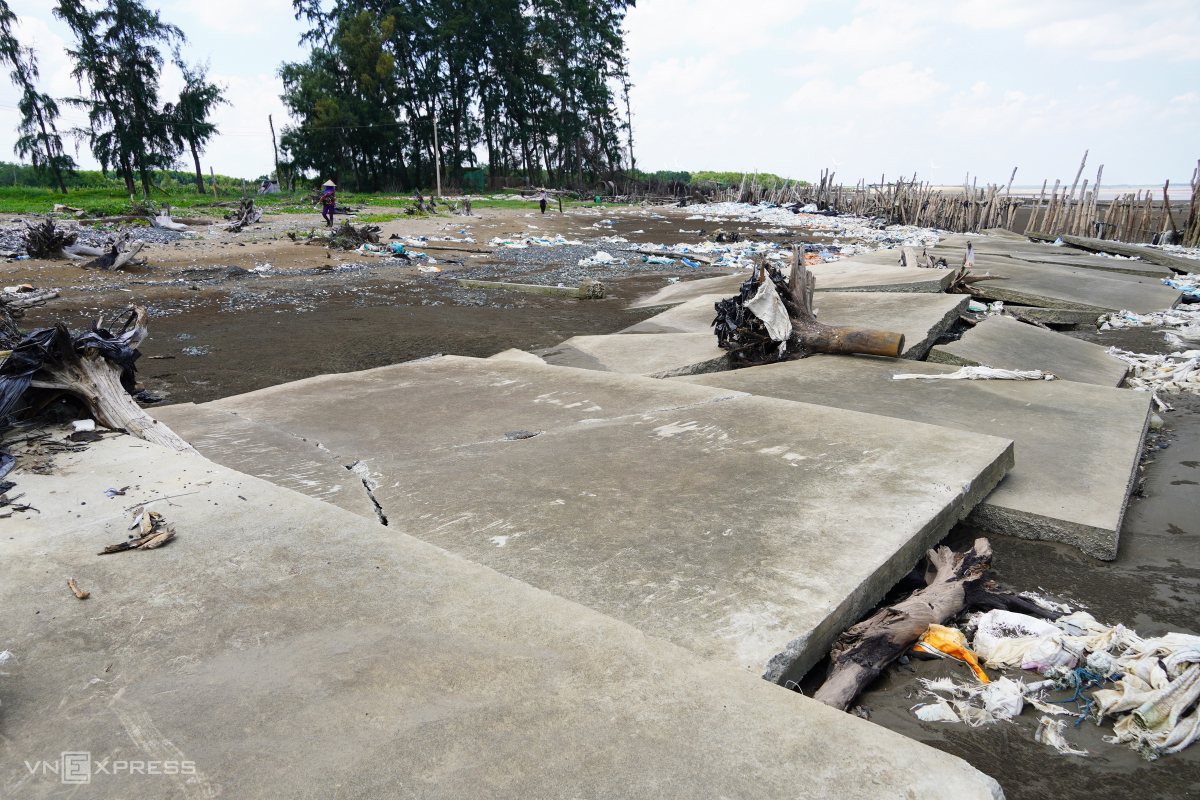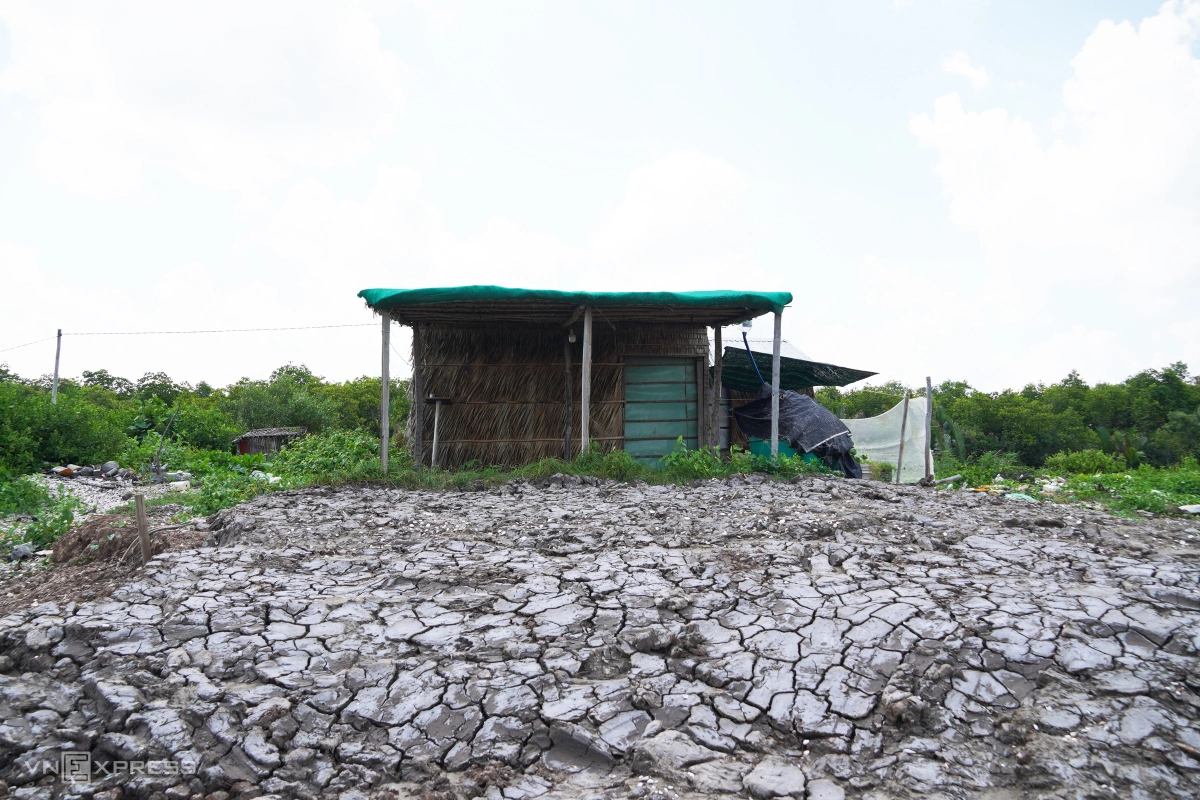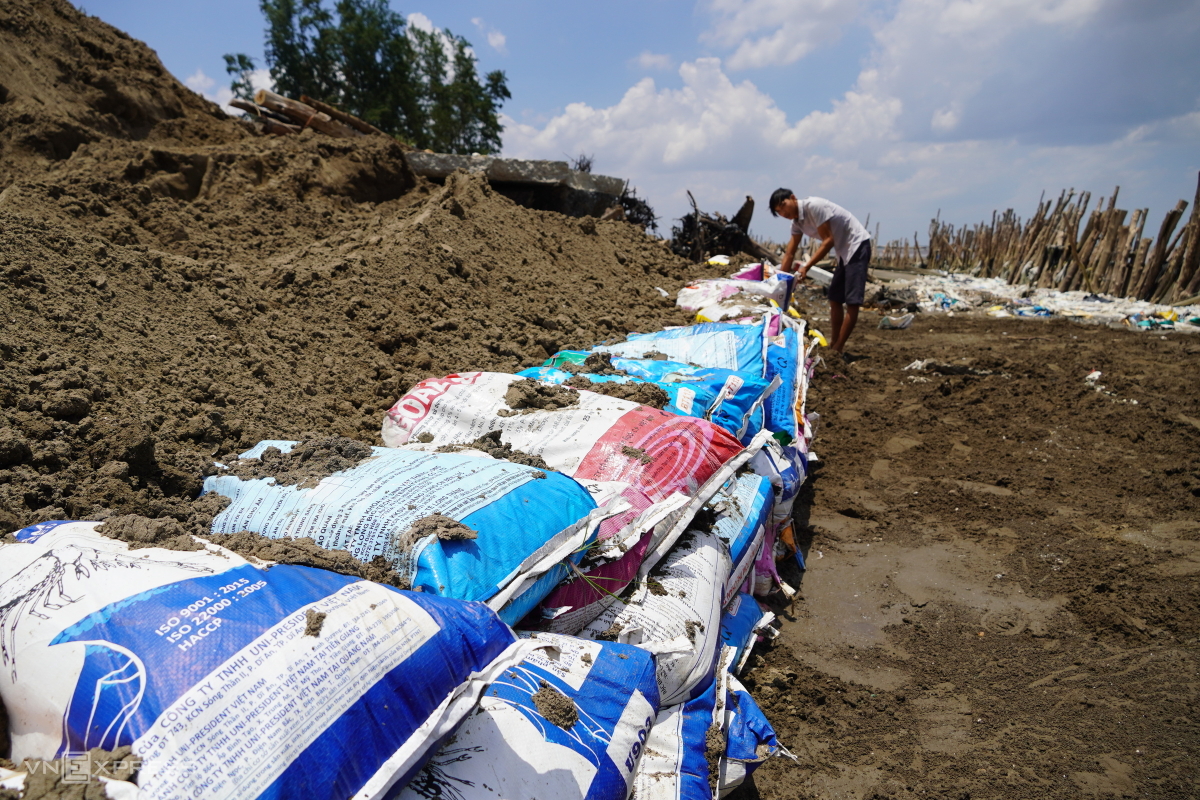Two men carrying tools for clam digging drive through a dead casuarina forest this week along the coast of Ba Tri District’s Bao Thuan Commune in Ben Tre.
For the past five years, erosion has been pushing its way inland up to 200 m into Ben Tre’s Ba Tri District, damaging protective forests, farming areas, and even washing away local residences.
Ben Tre has 65 km of coastline and has suffered some of the worst erosion damage in the Mekong Delta this year, losing about 200 hectares of land and 54 hectares of protective forests.
Uprooted by waves, a tree now lies on top of an abandoned water well.
The well belongs to a household that had to move due to the saltwater intrusion.
Along the coast of Bao Thuan Commune, there are about nine hectares of casuarina forests that have been killed by erosion and saltwater intrusion.
A one-kilometer concrete road leading to the commune’s clam farming cooperative was destroyed by the encroaching sea, and the cooperative’s headquarters nearby was also damaged.
Local Ben Tre resident Bui Thi Men’s makeshift house along the coast. For half a year now, no one has lived here.
Men’s family used to own one hectare of land and two houses, but has lost everything to the encroaching seawater.
Now the entire family has moved inland to more urban areas in search of opportunities to make a living.
Nguyen Van Nghieng, 51, collects dead tree trunks along the coast to build an embankment in front of his house.
He said when the windy season comes, it will bring along strong waves, which means erosion would become even fiercer.
In the Mekong Delta, the windy season normally arrives near the end of the rainy season, which is around November, and stays until early April when the dry season kicks in.
Nghieng's son arranges bags of sea sand at the embankment.
His family is one of more than 20 that are still trying their best to stay along the coast.
Around 500 m away from Nghieng’s embankment, Mai Van Sy sits in a hut next to a clam farm.
Sy is paid VND5 million per month to watch the farm.
He said due to erosion, his salary could not cover the cost to rebuild and reinforce his family’s house.
"We've been hit by erosion several times so now we build our house from trees and leaves, which is both cost-effective and convenient for us to relocate [should more erosion happen]," he said.
Stretching 800 m long, a concrete embankment in Bao Thuan Commune was completed two years ago at the cost of VND45 billion. It currently protects 3,500 households.

















